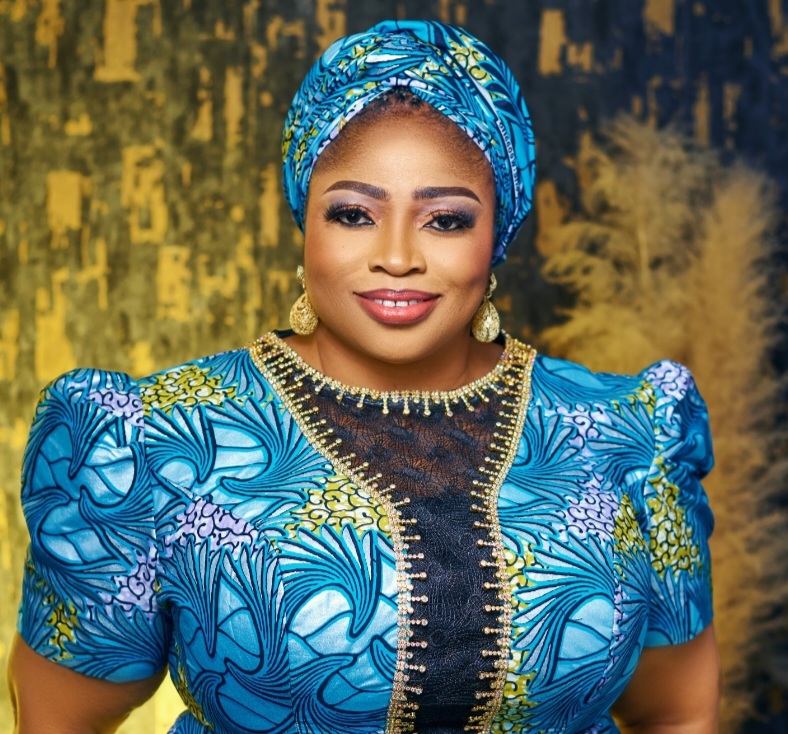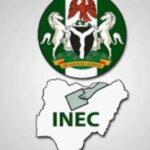Exodus: Movement of Nigerian Politicians!
One of the popular words in Nigerian politics is ‘defection’. Two years into an administration, you begin to hear political schemings, interests, meetings upon meetings and defections in preparation for the next election. It is no longer news that who is who in Nigerian politics, have started meeting and finding ways around the 2027 elections. Aggrieved parties are defecting, coalitions are underway, high level meetings where the fate of the average Nigerian is decided is taking place.
Nigerian politicians are cross- carpeting. Cross-carpeting between political parties, is a persistent issue in Nigerian politics that undermines democratic consolidation and party alignment. This phenomenon has become so common that it’s viewed by many as a tradition or an essential component of democracy in Nigeria. The question is, of what benefit is it the Nigeria and Nigerians? Is it for the good of all, a few or personal gain?
Unfortunately, Nigerian politicians frequently switch parties without any clear ideological justification, making it challenging to distinguish between parties. In America, there is a clear cut ideology between the Democratic Party and Republican Party. That cannot be said of Nigerian political parties. The same group of politicians, keep circulating round the parties. The practice portrays Nigerian politicians as self-serving and lacking in morality and integrity. One of the disadvantages of cross-carpeting is that, it leads to unhealthy power struggles and internal party conflicts. And when two elephants fight, the grass suffers.
The best explanation why Nigerian politicians, cross-carpet, is to gain better access to power and resources. Some politicians cross-carpet to escape political oppression or persecution from the powers that be in their parties. The annoying part is that, cross-carpeting can hinder democratic progress and stability. Nigerian politicians are aware, chose personal gain over National interest. It has led to political instability and undermine trust in the democratic process which leads to political apathy during elections.
Journey with me and let’s take a look at few Nigerian politicians out of so many who have more than one political affiliation: President Bola Tinubu’s party affiliations have evolved over the years. Tinubu started his political career with the SDP, under which he was elected to the Senate representing Lagos West Senatorial District in 1992. He joined the Alliance for Democracy 1998-2006 and won the Lagos State gubernatorial election in 1999, serving as Governor from 1999 to 2007. He was a member of Action Congress of Nigeria (ACN), from 2006-2013, where Tinubu played a key role in forming the ACN and was its national leader. In 2013, Tinubu was instrumental in merging several opposition parties to form the All Progressives Congress (APC), where he later emerged as the APC’s presidential candidate in 2023, winning the election and becoming Nigeria’s President.
Muhammadu Buhari’s party affiliation has also evolved over time. From All Nigeria Peoples Party (ANPP) where Buhari ran for President in 2003 and 2007, he also ran for President under the Congress for Progressive Change (CPC) in 2011. Buhari became a member of the APC in 2013 and won the presidential election in 2015 and 2019 under this party. He served as President of Nigeria from 2015 to 2023.
Atiku Abubakar was a member of the Peoples Front of Nigeria. Abubakar was involved with this group in the build-up to the Third Nigerian Republic. He joined Social Democratic Party (SDP), after the People’s Front merged with it and ran for the presidential primaries in 1993. As a member of the United Nigeria Congress Party, Abubakar showed interest in contesting for the gubernatorial seat of Adamawa State under this party during the General Sani Abacha transition. He joined the Peoples Democratic Party (PDP), in 1998 and served as Vice President under Olusegun Obasanjo from 1999 to 2007. He later returned to the PDP in 2007, left again in 2014, and rejoined in 2017. He was a member of Action Congress (AC), from 2006 to 2007, running for president in the 2007 elections. He joined the APC in 2014 and ran for the presidential primaries in 2015, but later returned to the PDP in 2017.
Nasir El-Rufai’s party affiliations have changed over time. He was a member of the Peoples Democratic Party (PDP), until 2009, he joined Congress for Progressive Change (CPC), in 2011. He became a founding member of the All Progressives Congress (APC), and served as the Governor of Kaduna State from 2015 to 2023. El-Rufai was also a key figure in the APC until he defected to the Social Democratic Party (SDP), on March 10, 2025, El-Rufai announced his defection from the APC to the SDP, citing growing misalignment between his values and the APC’s direction.
Godswill Akpabio’s party affiliations are as follows: Peoples Democratic Party (PDP), before defecting in 2018. During his time with the PDP, he served as the Governor of Akwa Ibom State from 2007 to 2015 and later became the Senate Minority Leader. Akpabio defected to the APC in August 2018. Under the APC, he was appointed Minister for Niger Delta Affairs in 2019 and later became the President of the Nigerian Senate in 2023.
Femi Gbajabiamila’s party affiliations have also evolved over time. He initially ran for a seat in the House of Representatives under Alliance for Democracy (AD) in 2003, but was unsuccessful. Gbajabiamila ran again in 2007 under Action Congress (AC) party and won. Gbajabiamila joined the APC in 2013 and has been a member ever since.
Vice President Kashim Shettima, started with the All Nigeria Peoples Party (ANPP) from 1999 to 2013 and served as the Governor of Borno State under this party from 2011 to 2019. Shettima joined the APC in 2013 and has been a member ever since.
George Akume, was a member of the United Nigeria Congress Party (UNCP). Akume was involved with this party during the General Sani Abacha transition. He joined the PDP and served as the Minister of Special Duties and Intergovernmental Affairs under President Olusegun Obasanjo. Akume defected to the APC in 2014 and has been a member ever since.
Abdullahi Adamu’s party affiliations have evolved over time. He was a pioneer member of the National Party of Nigeria (NPN), and served as the first Secretary-General in Plateau State from December 1978, and later as Chairman from 1982 to 1983. He joined the United Nigeria Congress Party (UNCP), during the General Sani Abacha regime. He became a founding member of the PDP in 1998 and served as Governor of Nasarawa State for two terms from 1999 to 2007 under this party. He later became the Secretary of the PDP’s Board of Trustees. Adamu defected to the APC before the 2015 general elections and worked with the party to unseat the incumbent government. He was later appointed as the National Chairman of the APC in March 2022 and served until his resignation in July 2023.
Abdullahi Umar Ganduje’s party affiliations has also evolved over time. Ganduje joined the National Party of Nigeria (NPN), during the Second Nigerian Republic and served as Kano State Assistant Secretary from 1979 to 1980. He joined the PDP in 1998 and ran for the party’s gubernatorial candidacy but lost to Rabiu Kwankwaso. Ganduje later served as Kwankwaso’s Deputy Governor from 1999 to 2003 and again from 2011 to 2014. Ganduje defected to the APC in 2014 and has been a member ever since. He won the governorship election in 2015 and served as Governor of Kano State from 2015 to 2023. Currently, he serves as the National Chairman of the APC, a position he assumed on August 3, 2023.
Rabiu Kwankwaso was a member of the Social Democratic Party (SDP) from 1989 to 1993 and served as a member of the House of Representatives and Deputy Speaker. Kwankwaso joined the PDP in 1998 and served as Governor of Kano State from 1999 to 2003 and again from 2011 to 2015. He also served as Minister of Defence from 2003 to 2007 under President Olusegun Obasanjo. He left the PDP for the APC in 2014, then returned to the PDP from 2018 to 2022. Also became a member of the All Progressives Congress (APC), from 2014 to 2018, serving as a senator representing Kano Central Senatorial District from 2015 to 2019. He joined the New Nigeria Peoples Party (NNPP), in 2022 and currently serves as the party’s national leader. Kwankwaso ran for president under the NNPP in the 2023 general election.
Yusuf Datti Baba-Ahmed joined the All Nigeria Peoples Party (ANPP), from 2002 to 2008 and served as a member of the House of Representatives for Zaria Federal Constituency, Kaduna State. He became a member of Congress for Progressive Change (CPC), in 2010 and won the Kaduna North Senatorial election in 2011, although his victory was later overturned by an electoral tribunal. He joined the PDP from 2012 to 2022, during which he ran for president in the 2019 PDP primary and lost, and also attempted to become the party’s gubernatorial candidate for Kaduna State in 2023 but withdrew due to disagreements over delegate vote buying. Baba-Ahmed joined the Labour Party in 2022 and became the party’s vice-presidential candidate, running alongside Peter Obi in the 2023 Nigerian presidential election.
Peter Obi was a member of the All Progressives Grand Alliance (APGA), where he initially ran for the Anambra State governorship election under this in 2003. Obi later joined the PDP and served as the party’s candidate for vice president in the 2019 general elections alongside Atiku Abubakar. In 2022, Obi defected to the Labour Party and became the party’s presidential candidate for the 2023 general elections, selecting Yusuf Datti Baba-Ahmed as his running mate. Obi’s current affiliation is with the Labour Party, where he has garnered significant support, particularly from young voters who identify as “Obidients.” This movement has been described as one of the biggest political movements in recent Nigerian history.
Constant cross-carpeting is not idea for politics on Nigeria. Political parties should be founded on robust ideological bases to reduce the incentive for politicians to switch parties. Politicians should prioritise democratic consolidation over personal interests. Meanwhile, mechanisms should be put in place to hold politicians accountable for their actions and party switching.






